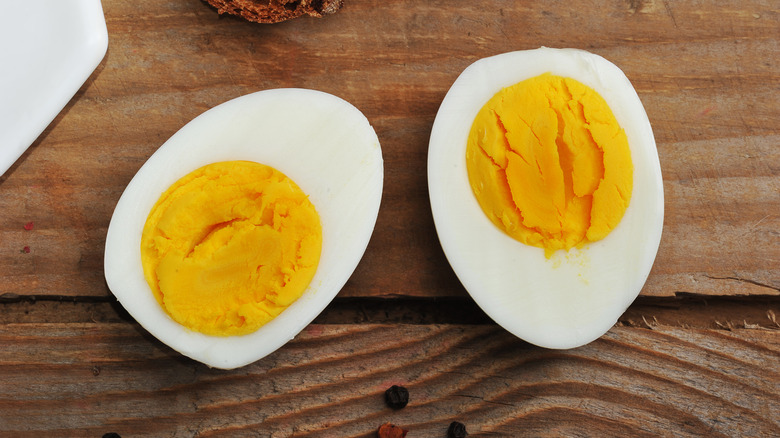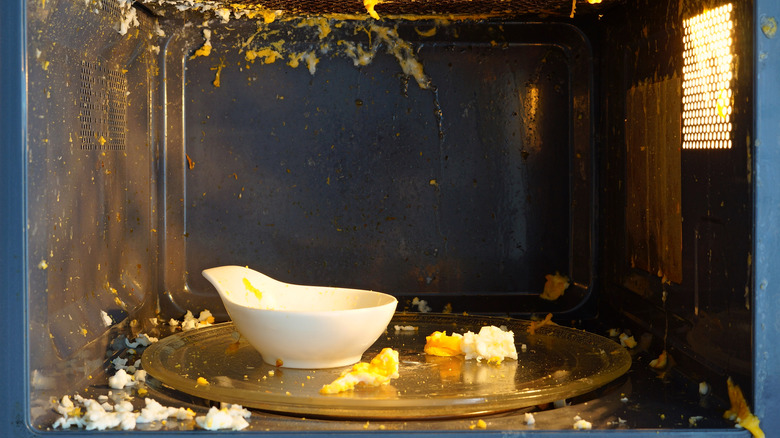The Reason You Should Never Microwave A Hard Boiled Egg Whole
Eggs are a breakfast staple, a wonderful source of protein, and are so versatile in the ways you can prepare them. From poaching them for eggs benedict and scrambling them to pair with bacon, to frying them to top avocado toast and baking them into a breakfast casserole, the ways to incorporate them go on and on.
Though not a common breakfast preparation, another way to make this protein-packed food is by boiling them. While many boil eggs for deviled eggs, an egg salad situation, or topping salads, having them already cooked and chilling in the fridge allows for an easy on-the-go indulgence. And you may want to hold off on peeling them, as The Pioneer Woman suggests storing boiled eggs in their shell in the fridge helps keep them fresh for longer. Eggs should be chilled before eating, but that doesn't mean you have to eat them this way. However, if you're considering heating your boiled eggs for snack time, the microwave is strictly off-limits.
It lends a mess
This is because, whether your hard-boiled egg is already peeled or not, nuking it in the microwave can lead to an explosion. According to Real Simple, this occurs due to the steam that is released during cooking. When you cook hard-boiled eggs in the microwave, the steam pressure builds within the egg white, eventually causing it to erupt. Microwaves work by heating up not the food but the liquids within the food. So this steam builds up due to the amount of moisture inside of the egg, which is often why the messy result looks like a powdery yellow egg yolk (via myRecipes).
And in case you're tempted to ignore this advice — please don't— as the egg eruption can even be delayed until you cut or bite into the egg, running the risk of a burn. If you want to heat up your hard-boiled eggs, Real Simple recommends cutting the eggs into quarters before microwaving them. Another trick that doesn't involve the microwave is placing them in a bowl or cup of hot water until they're heated through, which only takes about three to five minutes. And if you're looking for a quick way to heat the water, that trusty microwave will work just fine.

